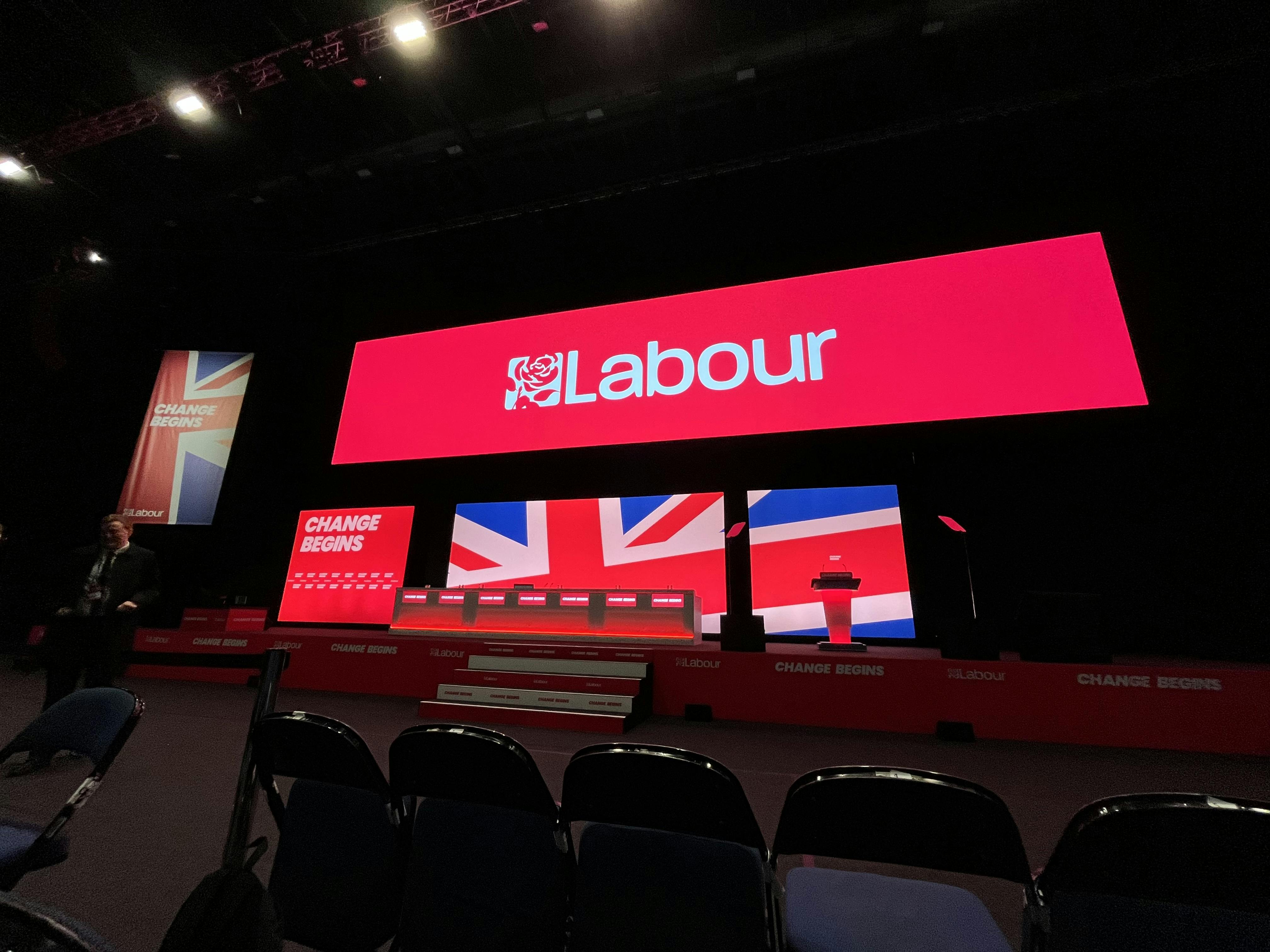By James Maxwell, Account Director at Incisive Health
As the Conservatives meet in Birmingham to decide the future of the party, Incisive Health's James Maxwell shares his reflections on the mood of the governing Labour Party last week's conference in Liverpool, and how the new health team is fairing.
For a party that had won an historic landslide just some 11 weeks prior, the Labour Party autumn conference 2024 was muted.
The narrative for the week ahead had largely already been set in the media, as journalists quizzed MPs and party officials about the Prime Minister's grip over his Downing Street operation.
The three-month gap between HM Treasury’s audit identifying a "£22 billion fiscal black hole" and the Autumn Budget has created a policy and communications vacuum in Government, filled by internal score-settling and a focus on unfortunate administrative missteps. Policies that were announced proved unpopular, and saw unions moving against the leadership and an MP resigning over the means testing of the winter fuel payment.
Did they really win?
Instead of celebrating the first Labour government in 15 years, MPs were told to be on their most ‘serious’ behaviour, with aids biting their tongues as experts interrogated government policy in the surrounding bars. Where shadow ministers once probed Britain's best thinkers, Secretaries of State and Ministers now used fringe events to repeat their carefully rehearsed lines and suspiciously similar jokes about Chancellor Rachel Reeves controlling their implanted microchips whenever questions about funding arose. Party members – who had spent their summer months grinding the doorstep in the desperation for a Labour victory – seemed uninspired at best, bitter at worst.
It took two speeches by the Prime Minister and then the Chancellor to inject some optimism into Labour’s new parliamentary coalition, with news that the Government was preparing a long-term investment package and reminders of the electoral weakness of the Conservatives going some way to raise the mood.
When it comes to health
On health and social care, we learnt less about policy and more about the type of leadership Wes Streeting will bring to Department of Health and Social Care – partially because Ministers have been left in a holding pattern on the Government’s agenda. Mr Streeting often spoke about his disgust with the lack of respect shown to NHS staff and social care workers, and made no apology for wanting to lift up their salaries at a time when health systems and local councils are facing severe deficits – beginning with settling ongoing pay disputes and ending with a fair pay agreement for social care staff. He also spoke about the indignity in which women, in particular Black women, are treated during maternity and how some of the most vulnerable patients (including children) are as anything other than individuals.
Mr Streeting has faced doubts about his ability to turn around the dire state of the NHS exposed by Lord Darzi’s investigation. However, throughout conference, Mr Streeting demonstrated his willingness to take on resistance wherever it is found, even if that means generating bad headlines to improve the nation's health and restore standards within care.
He spoke about the learning curve that has come with having a ministerial red box, from having a system which seemed to default to wanting to protect its reputation over uncovering the truth in the case of the Darzi report and that of the Care Quality Commission’s failings, to being taken aback that the only obvious lever over the social care sector is writing letters to providers.
The right politician for the job
Rather than being the right politician in the wrong government department, having an ambitious and politically savvy Secretary of State attach their political capital to reforming the healthcare service, I suspect, will result in what once seemed like the impossible suddenly becoming reachable, from settling strikes with junior doctors within the first few days of entering Victoria Street to softening-up HM Treasury when it comes to capital funding. With the appointment of Alan Milburn, Sally Warren, Paul Corrigan, and others, Streeting has the best minds and expertise on hand right where it is most needed.
Regardless of the drama within Downing Street, the Government has the largest majority of any administration since the 1997 election, and teething problems will soon need to give way after the Budget and Spending Review – for the country's challenges will not wait.
Next month, the Government will launch its consultation on the 10-year plan for the NHS and announce its industrial strategy for growth, and we look forward to supporting clients contributing to a healthier and more productive Britain. In the meantime, the Government will hope that conference will have provided the justification to the glumness, and that dangling a few baubles ahead of the Budget will keep MPs’ unhappy inboxes at bay.
